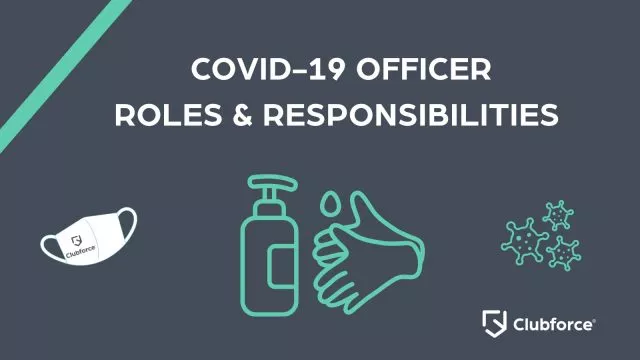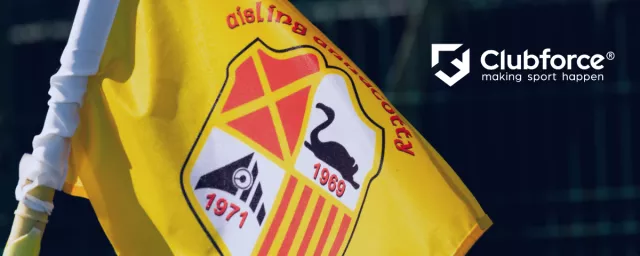
Duties identified by governing bodies in line with government COVID-19 protocols
As part of comprehensive ‘Return to Play’ protocols issued by governing bodies of sport, all clubs are expected to appoint COVID-19 officers tasked with facilitating safe participation in sport and reducing the risk of spread of the coronavirus. This role is responsible for ensuring safe environments for training and play through regular risk assessment and communication as well as tracking attendance at training and club events in the event of a need to trace contacts of people who acquire the illness.
Different governing bodies of sport will have different approaches to how they intend to manage participation in the era of coronavirus – for example variations are likely to exist where sports are predominantly indoor activities versus outdoors.
The GAA (Gaelic Athletic Association) has specific resources and training material relating to COVID-19 roles in GAA clubs with specific guidance for players, team personnel, parents, match officials and the dedicated role of COVID-19 Supervisors. The COVID-19 Supervisor role overview for GAA clubs can be accessed here – all supervisors are required to complete the Gaelic Games Return to Training module on the GAA eLearning website.
The FAI have publish the roles and responsibilities of COVID-19 officers for football on their website and neighbouring football associations have done similar – the Irish FA (IFA) also have published details of the COVId-19 officer role and the FA in England also have a COVID support resources on their website for clubs and leagues.
Swim Ireland also has detailed guidance on appointing a Lead COVID-19 Officer and support COVID-19 Officers with a separate job description available for each on their website.
Who can become a COVID-19 Officer?
This is an important new volunteering role within sports clubs and requires a specific skill set – the appointed person must keep up-to-date with the changing environment and act in accordance with the latest protocols set out by government and governing bodies of sport. The person should be organised with good attention to detail and good record keeping, should be comfortable working with young people, should be mindful of individual privacy/confidentiality and be a clear communicator. Where working with juveniles, COVID-19 officers will also have to have completed police vetting and any safeguarding courses outlined by the governing body.
Responsibilities of the COVID-19 Officer
This is not intended to be an exhaustive list of responsibilities but instead highlights the key areas of responsibility and references documents published by various governing bodies to ensure club volunteers are armed with the best available information to create a relatively safe environment for sports participation.
Risk assessment
Identifying the risks around the club such as many instances of direct transmission and indirect transmission of the virus, forms the basis for ensuring a club is well prepared to manage safe participation. Basketball Ireland have a very good risk assessment template in their Return to Sport COVID Policy document on their website which might be useful for other clubs to adopt if they have not received a specific template from their own governing body – best practice would be to consult your governing body first to ensure that you are complying with their regulations.
Creating a safe environment
With knowledge of the likely risks prioritised by level of risk, the COVID-19 Officer can then take relevant steps to minimise those risks and create a safe environment for participating in training, games or other club-related activities. Some of these steps are outlined below but may not cover all scenarios across different sports:
- Communicate expectations around drop-offs / pick-ups (e.g. staggered arrival time, no congregating in car parks etc.)
- Making signage visible to reinforce social distancing, cough etiquette, sanitisation etc.
- Providing hand sanitiser at entrance/exit to facilities
- Ensuring use of sanitiser by participants
- Limiting group sizes (based on government regulations, available space, coach-to-player ratios etc.)
- Regular sanitising of equipment (e.g. training equipment, goalposts etc.)
- Health screening – start with COVID-19 questionnaire to ensure participants are fit to participate
- Tracking attendance – maintain a record of who has attended and when
- Keep direct contact to a minimum (until guidelines are changed)
Attendance tracking
In the event of a club member testing positive for COVID-19, it’s important from a community health perspective to be able to trace their known contacts in order to limit the spread of coronavirus. The Clubforce mobile app includes COVID-19 health screening push notifications and attendance tracking functionality to help make it easier for club officers to produce a record of contacts from any training session or club event.
Communicating protocols
Given the changing nature of the pandemic and new variants of the virus coming into the community, the protocols are subject to a certain amount of change (e.g. masks were not used initially but are commonplace now). People may also not have yet fully established habits around hand hygiene and social distancing etc. and need to be reminded through regular communication by all volunteers but this ongoing initiative is part of the role of the COVID-19 officer including verbal reminders and visual cues such as COVID-19 signage.
Reporting
The COVID-19 officer will also provide frequent updates to the club committee (and if necessary the governing body) especially where breaches of protocol or coronavirus outbreaks occur in their club.
If your club would like to know more about attendance tracking for COVID-19 on the Clubforce app, please fill in the form below and a member of our team will be in touch!




